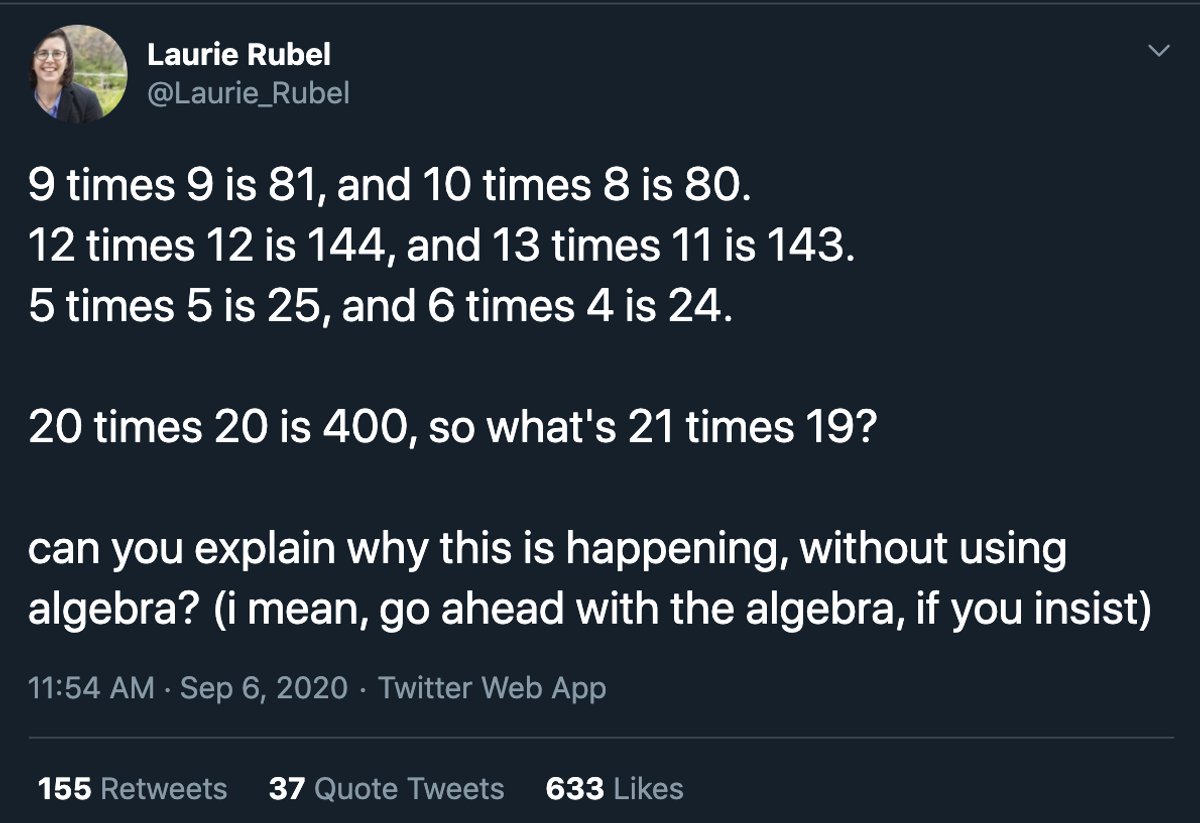12 of 21 Items .... Course: ALG
Problems, Questions, and Puzzles to spark discussion and argument in the maths classroom.
. . . View This Fullsize
These questions are from the NY Regents test, and discussed by Patrick Honner in his long-running series, "Are These Tests Any Good?".
Can your students find what is wrong with them?
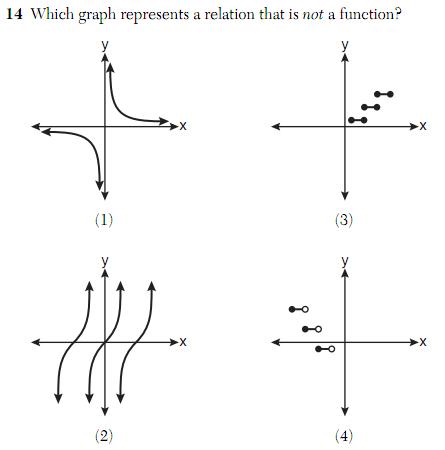
and
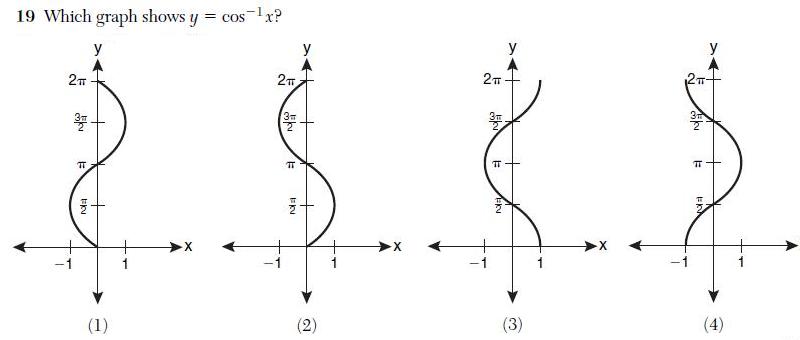
.: [ALG], [Mr. Honner], [Find the Error].
. . . View This Fullsize

Everyone older than ten knows that there is a way to play tic-tac-toe so that you can never lose. Any game that can be played to a draw unless someone makes a newbie's mistake, is boring once you know the secret.
Let's look at this one and see if you can find a strategy for it:
Players alternate writing a number from 1 - 9 (once used, itís dead). First one with a set of three numbers that sum to 15 wins.
Is there a guaranteed winning strategy for Player 1?
Is there a guaranteed winning strategy for Player 2?
How does his later comment help? "Itís equivalent to tic-tac-toe since any row/col/diagonal in a 3x3 magic square sums to 15, but more mathematically interesting."
.: [ALG], [Chris Lusto], [Game].
. . . View This Fullsize
How is this problem

related to this one from a few days back?
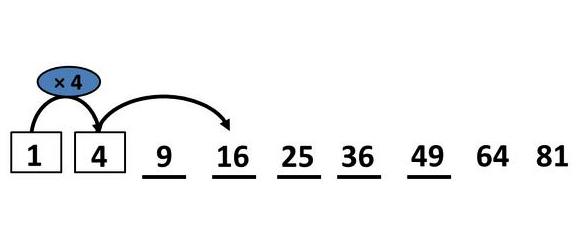
Is any square number times four another square number?
.: [ALG], [T.R.Milne], [Find the Pattern].
. . . View This Fullsize
Always True, Sometimes True, or Never True?
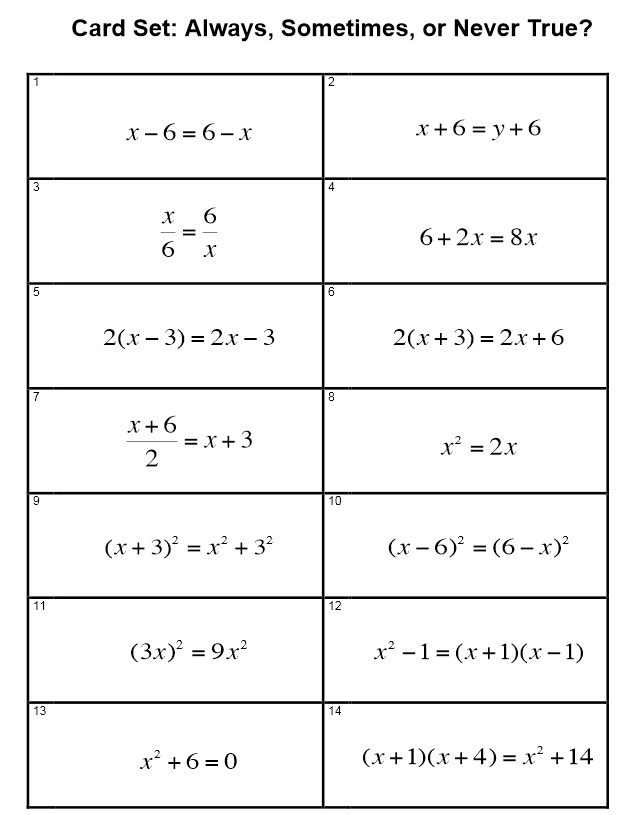
Cut out the cards and have students sort them into one of the three categories.
In each case, students need to say WHY its always true or NEVER true, or give an example and a counterexample for when it is SOMETIMES true.
.: [ALG], [Mathshell], [ASN].
. . . View This Fullsize
The process seems to be the interesting thing here. How would you begin to work on this?
In how many ways can you write \( 2^n \) as a difference of two squares?
.: [ALG], [James Tanton], [How Many Ways?].
. . . View This Fullsize
If a, b are positive integers greater than 1 and \(b^a=2^{12}\) then what is the largest possible value of b?
.: [ALG], [David Marain], [Raw Pure Math].
. . . View This Fullsize
Here is an expression:† \(x≤ + 6x = x≤ - 8x + 4\)
Would you describe it as "quadratic" or "linear"?
If the \(x^2\) terms cancel out, does that change your thought?
Is this wolframalpha plot helpful?
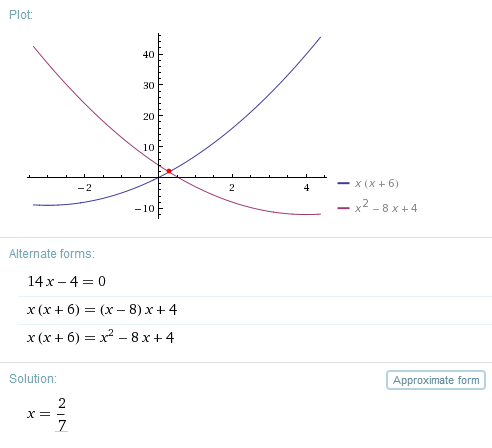
Is this desmos response helpful?

.: [ALG], [David Wees], [Notice, Wonder].
. . . View This Fullsize
Why are coordinate axes perpendicular?
Do they have to be?
What if there are more than two dimensions?
My question of the day: what's so great about axes being perpendicular?
.: [ALG], [Mr. Honner], [What If].
. . . View This Fullsize
If anything to the power of 0 is 1, and 0 to any power is 0, then what is \( 0^0 \)?
.: [ALG], [internet], [Number Theory].
. . . View This Fullsize
Can you show if this is true?
\(2^6 * 2^6 = 2^{11} + 2^{11}\)
Can we generate more like this one ... simple and elegant?
How about one with 3 as a base?
.: [ALG], [Kate Nowak], [Explainer].
. . . View This Fullsize
How would you split these lines into 2 groups?
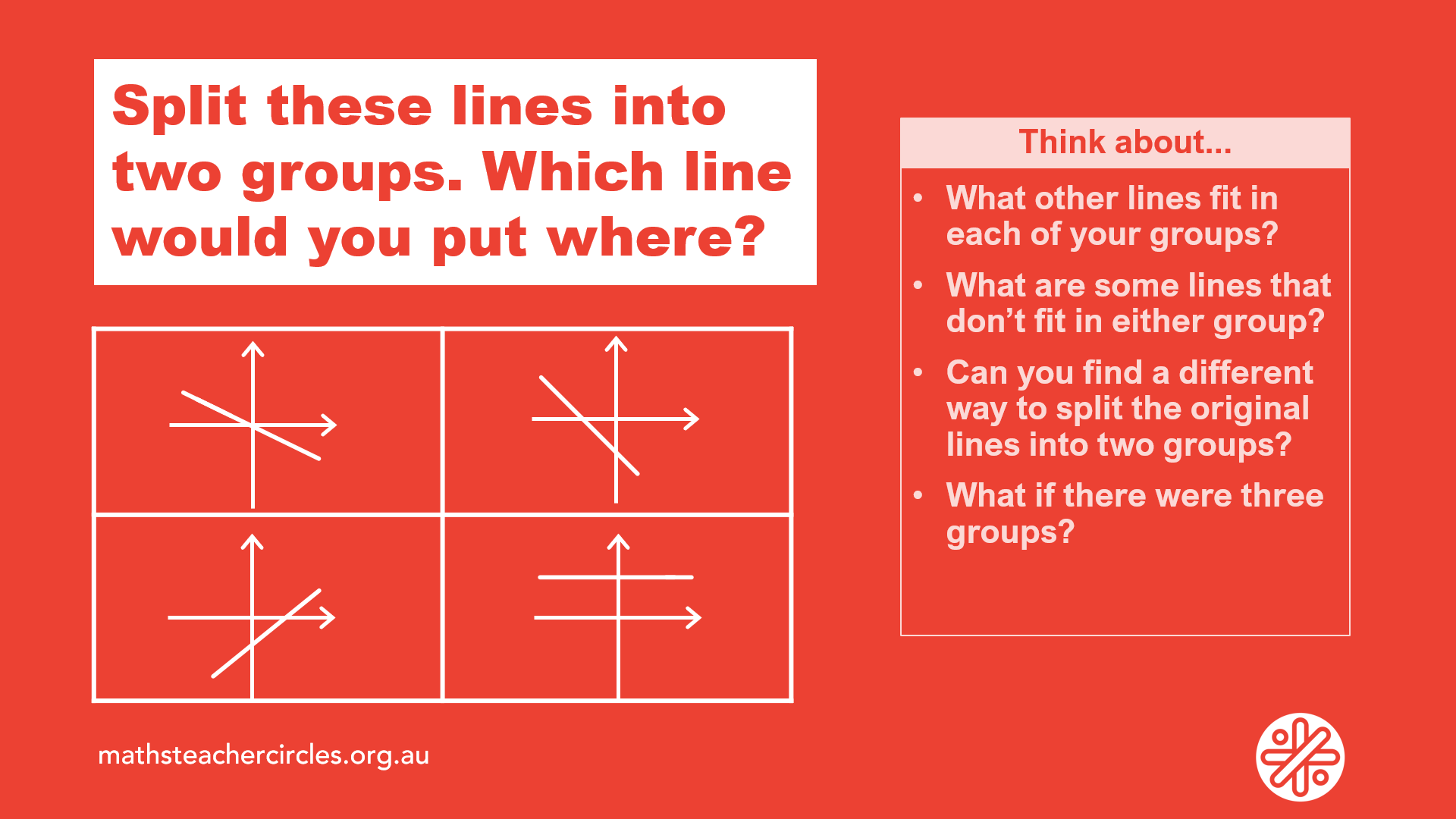
What other lines would fit into your groups? What wouldn't fit?
Which ones do belong?
.: [ALG], [MathCirclesOz], [WODB].
